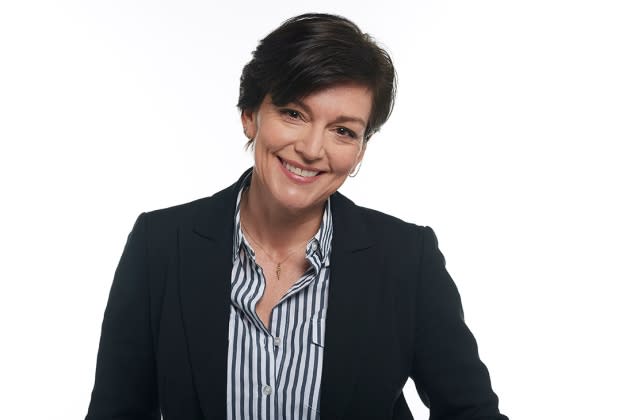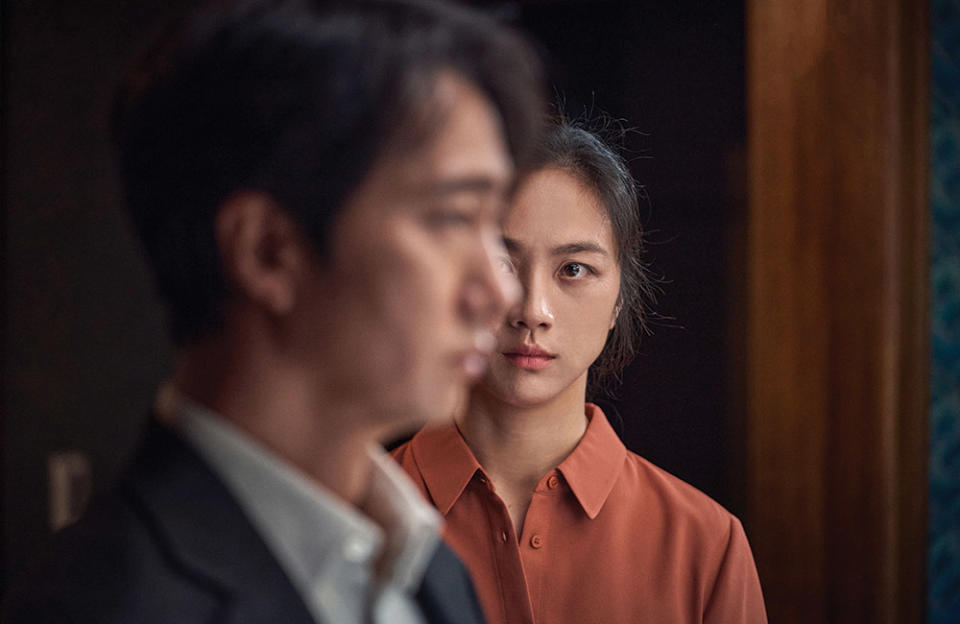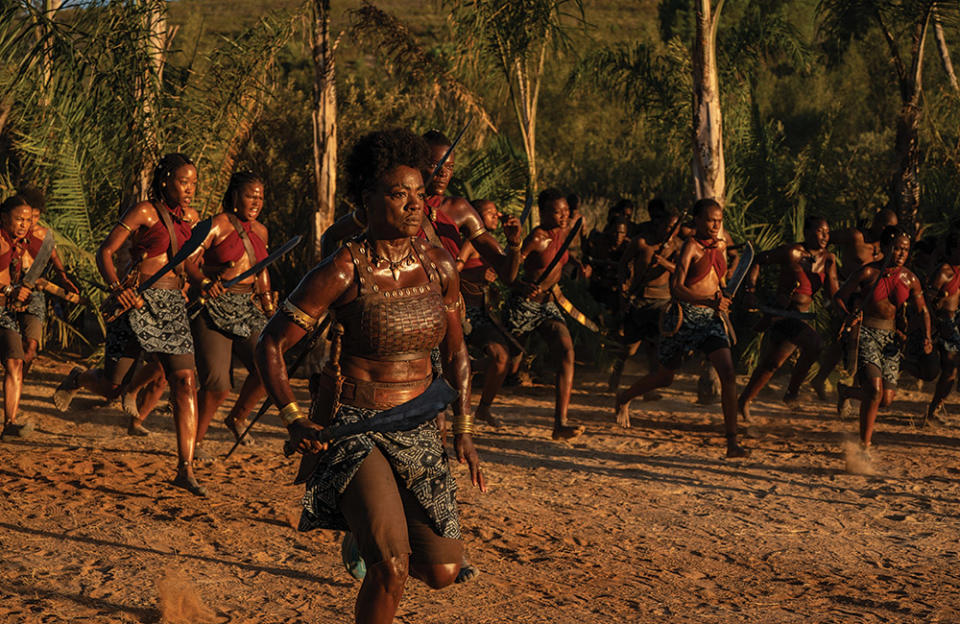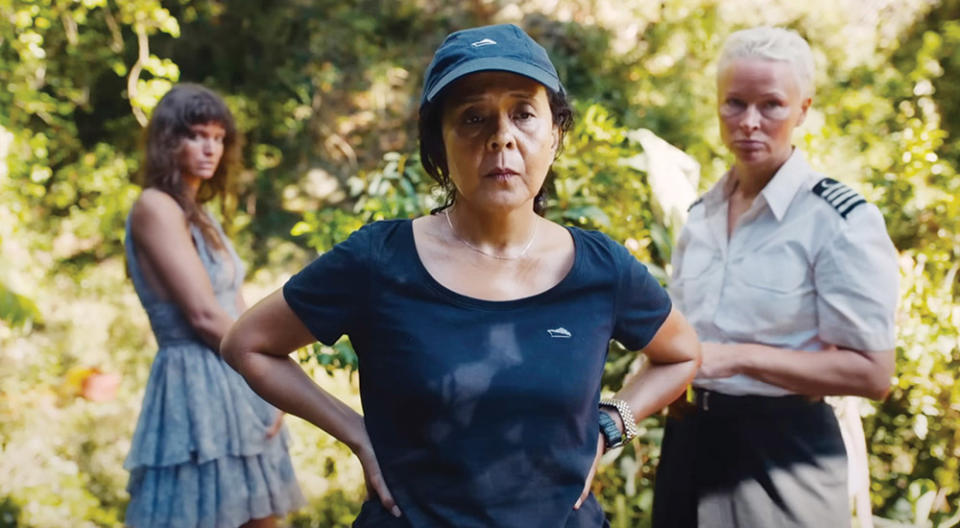BAFTA CEO Jane Millichip on Her First Awards and Getting Richard E. Grant to Host: “We Need to Have a Good Time”
- Oops!Something went wrong.Please try again later.

The Sauron-like eye of awards season will shift its beady gaze to London on Feb. 19 for the BAFTAs, arguably the biggest film ceremony outside of the U.S.
Change is afoot for the jewel in the British Academy’s crown, and not just with the increasing diversity of the nominations, which this year saw a total of 45 films given nods and love given to many performances and features snubbed by AMPAS voters, including the likes of Decision to Leave and, perhaps most surprisingly, The Woman King. It should also be noted that AMPAS’ wide-ranging appreciation for The Fabelmans wasn’t matched over the Atlantic, Spielberg’s deeply personal feature only getting an original screenplay BAFTA nomination.
More from The Hollywood Reporter
Berlin: Rolf de Heer on How COVID and BLM Shaped 'The Survival of Kindness'
Berlin Hidden Gem: Drag Queen Revenge Thriller 'Femme' and the Birth of "Queer Noir"
The Pluck of the Irish: Why Ireland's Film and TV Sector Has Been "Punching Above Its Weight"
The BAFTAs have also moved venue, shifting from the Royal Albert Hall to its new home at the more contemporary Royal Festival Hall on the banks of the Thames (featuring rather delightful views of Big Ben from the press room). And this year, it’s breaking new ground for audiences at home by adding its first-ever live element, while also taking viewers behind the scenes with its new BAFTA Studio offering.
But perhaps the biggest change at BAFTA is a new face at the helm. TV veteran Jane Millichip joined as CEO in late 2022, taking over from Amanda Berry who stepped down following a much celebrated 25-year tenure. Speaking to THR, Millichip discusses her first-ever awards, the advice she got from Berry, the ongoing impact of the tough review process BAFTA undertook in 2020 and why Richard E. Grant is the perfect host for the 2023 ceremony.
This is your first BAFTA Awards as CEO. How are you feeling? Excited? Nervous? Both in equal measure?
Both in equal measure. I have absolute confidence in the team, but I’ve not gone through this process. But it’s fascinating. I’ve been in businesses with adjacent stuff before, but nothing on this scale. I’m so impressed with our teams. The amount of work they get through to deliver this is incredible.
As someone who’s obviously watched the awards as a viewer before, is there anything you’re particularly looking forward to now you’re in the thick of it?
I’m really looking forward to the live element. As you know, the last four awards are going to be live, and that’s groundbreaking for us. The other thing that is really interesting this year, and I was thinking about this when I was coming into BAFTA, is about how you approach television coverage compared to how you approach the ceremony itself. They don’t have to actually slavishly follow each other, so long as you represent the awards properly in the television coverage. And lo and behold, the team were already thinking about this. So we’ve got the addition of the BAFTA TV studios.
Can you recall your first-ever memory of watching the BAFTAs?
I don’t remember a specific one, but I do remember kind of being in awe of it, and just loving the glamour, loving the love of films. When I was a kid and really loving it, it did feel very far away from me and my world. I never thought I’d be even close to it, let alone sitting in the boardroom at BAFTA.

Did previous CEO Amanda Berry leave you any notes or tips when you joined?
Amanda is one of the most charming people I’ve ever met. And there was a note welcoming note on my desk, which was absolutely lovely. But I actually called her last week and asked if she had any tips for awards night and she said: “Comfortable clothing.” Actually, that’s probably the best bit of advice that I’ve had.
BAFTA went through a pretty grueling review process a few years ago that saw over 120 rule changes put in place. Since then, the nominations have been some of the most diverse and wide-ranging in the Academy’s history. As someone perhaps looking in at the time, what were your thoughts of the review and what was achieved?
I think it was incredibly rigorous, and really impressive. When I was researching joining BAFTA and digging into the details of the review, which I’d never really done before aside from read the press, and heard about the hundreds and hundreds of interviews they did with practitioners, the deep dive into how a process might work. It’s really smart thinking. But the important thing is this isn’t the end state. We’ll review every year and keep assessing it. I think what has worked really well is that if you require of your members to watch more films, you will get more diverse outcomes. It sounds really simplistic, but the obligation that every voting member now has to watch the minimum number of films guarantees that every entrant has a minimum number of considerations, and that makes a huge difference. Also the director award is significant in that we insist on gender parity for the longlist, but once we get there, there’s no further intervention. And publishing the longlist is also important, because it shows our workings. Also, if I were involved in a film that got longlisted but didn’t make it to nomination, I’d still be really proud. 217 films were entered and to go straight to six or five, that’s quite a cruel cut for some people.
Now that you’re involved, is there an area of the review that you’d like to focus on?
I think we have to look at the data. On nominations day, some of the press picked up on the fact that we only have one woman director in the directing categories. But we had 12 named women directors in other categories, which is really good. I think we have to think about this as a creative endeavor, I’m not sure progress will always be linear. We’re at the end of several years of development, production and delivery of films in that creative journey. And these are also long-term changes. So you have to be careful not to be too reactive to blips in the outcomes and make sure that we really think hard about the changes and tweaks.

I think in the previous years, people have accused the BAFTA of too closely resembling the Oscars in terms of nominees and often winners. But since the review and particular this year and last, there really seems to be a clear line in the sand separating the two. Is this something you’ve noticed?
Our awards are about recognizing excellence, so I would expect there to be similarities. But I think all the work on the review has made a difference. And I think that BAFTA moved first or were early in this process, to really do a proper review that wasn’t lip service. Our membership is largely based in Britain. We’ve got a big chunk of membership in the States and elsewhere. So I think there are taste differences that are culturally bound. But yeah, I’m really proud that we’re not pretending to be anything else. We are a really prestigious awards. And we have an amazing number of nominees intending to come to the ceremony. More nominees are attending this year than ever before. So that’s a real statement of confidence from the industry to us.
One thing this year I noticed was that the BAFTAs seemed to have a distinctly international slant. All Quiet on the Western Front obviously did amazingly well at the Oscars too, but then BAFTA gave two nominations to Decision to Leave where AMPAS didn’t, and one for Triangle of Sadness’ Dolly De Leon. Do you feel like there’s a more global spread this year than before.
I’m really pleased to see entrants coming from a wide variety of territories. And we’ve got a growing international membership. But this might be a result of potentially lots of factors. Obviously I think streaming viewing is much more international than it was. And I think the industry is in a slightly more globalized place than it was. But also the viewing public and voting members are much more open to films not in the English language from other cultures. So I think this is a cultural trend we’re picking up.

How much do you think something as simple as expanding the size of some of the categories — particularly for performance — has helped BAFTA overcome some of the criticisms about diversity it faced prior to the review?
It’s a factor among many that have made the changes. We’re not going to just keep bloating the categories out! That’s not a tactic at all. But one of the interesting outcomes is that 45 films are nominated in all the categories, and what we’re seeing post the review is that a greater number of films are being nominated as a proportion of those entered. So I think that is as much a factor as having one extra nominee in the categories.
You’ve got Richard E. Grant hosting this year. He’s not quite as outspoken or wild as last year’s host Rebel Wilson, but I still think he’s a little cheeky. Do you think his jokes are going to be a little less punchy? Should the stars in attendance be less worried?
In the production planning and discussion around this year’s awards, everybody was in agreement that we wanted a warm feeling, a great, warm, celebratory feeling. And that’s not a reaction to anything that’s gone before, it’s really, I suppose, the mood of the moment. We need to have a good time. The world’s gone through a couple of difficult years. Warmth. Celebration. And humor, yes, of course. Richard is it’s a really smart man and is very involved in the script. We want him to feel like it’s in his words, but it’s a collaborative effort.
As a very, very long-term fan of Grant’s cult classic Withnail & I, I’m personally hoping he gives us a little taste of Withnail on stage. Do you have any particularly favorite lines or scenes from the film?
I think it’s probably one of the most rewatched films of any I know. But for me, it’s the kitchen sink. That still terrifies me. It’s just so awful. I’ve never gotten over it. But Richard recorded a few little bits of interview for us and he talked a little bit about the fact that that was his first ever film audition. Daniel Day-Lewis apparently turned it down and he turned up!
Interview edited for length and clarity.
This story first appeared in the Feb. 15 issue of The Hollywood Reporter magazine. Click here to subscribe.

